News from Maison de la Gare
Senegalese Students Work for Change
Tweeter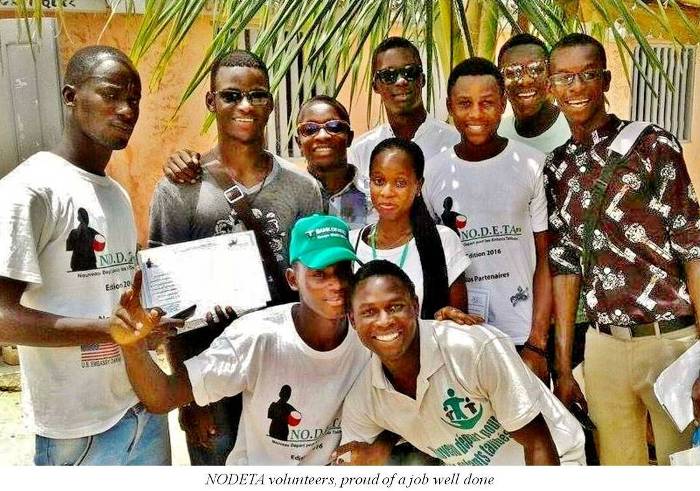
A New Start for Talibé Children
Most residents of Senegal have
lived near begging talibés all their lives. And, to many, the talibés are just
part of life, not thought of as individual children with human
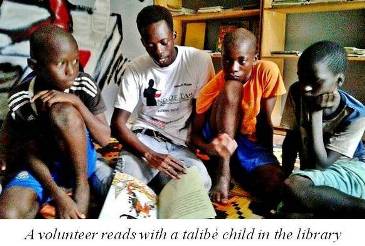 rights, hopes or
dreams. But this summer that all changed for a group of one hundred and
thirty-five local university and high school volunteers in the city of Saint-Louis.
rights, hopes or
dreams. But this summer that all changed for a group of one hundred and
thirty-five local university and high school volunteers in the city of Saint-Louis.
NODETA (Nouveau départ pour les enfants talibés)
is a student led volunteer organization with the objective of involving all
stakeholders in finding a solution for Senegal's notorious talibé issue. Rose
M'Baye and Boubacar Diallo, NODETA's coordinators, are Senegalese students who
have just graduated from the University of Rochester in New York. Returning
to Saint-Louis after having secured a grant from the US embassy in Dakar, Rose
and Boubacar 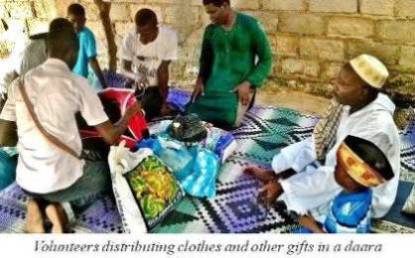 partnered NODETA with Maison de la Gare to work with talibé
children, parents of talibés, marabouts, the government and local community
members to raise
partnered NODETA with Maison de la Gare to work with talibé
children, parents of talibés, marabouts, the government and local community
members to raise 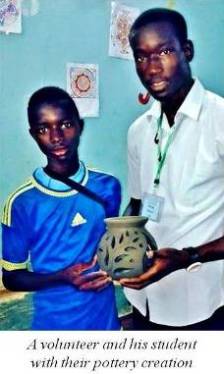 awareness about the talibé situation and to improve their
conditions. This summer NODETA's second campaign was launched, lasting six
weeks.
awareness about the talibé situation and to improve their
conditions. This summer NODETA's second campaign was launched, lasting six
weeks.
The local volunteers were divided into groups of approximately twenty-five,
each having a team leader. The volunteer teams went door to door in the
community, fundraising and obtaining donations of clothing, shoes, mattresses,
mosquito nets and other supplies for the talibés. Nearly 500,000 francs were
collected (about $800 US) along with over seven hundred items of clothing and
materials and cleaning supplies to help improve living conditions in some
daaras. The money was used to renovate four particularly run down daaras.
The groups visited twenty daaras to distribute donations of supplies. The
community fundraising and many daara visits led the volunteers to many parts
of Saint Louis that they had never before seen.
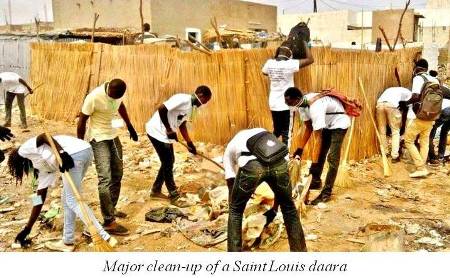 Through working with the marabouts, the volunteers soon came to learn that
many of them do not always act in the best interests of the children.
Marabouts would often try to deflect attention from evidence of abusive
conditions suffered by the talibés under their "care". Or, they would try
to extract a personal benefit. The volunteers found they had to use
diplomacy in order to facilitate discussions with marabouts. Even then,
they were sometimes discouraged that some marabouts would fail to take
advantage of the improvements offered for the talibés, if it gave them
no personal benefit.
Through working with the marabouts, the volunteers soon came to learn that
many of them do not always act in the best interests of the children.
Marabouts would often try to deflect attention from evidence of abusive
conditions suffered by the talibés under their "care". Or, they would try
to extract a personal benefit. The volunteers found they had to use
diplomacy in order to facilitate discussions with marabouts. Even then,
they were sometimes discouraged that some marabouts would fail to take
advantage of the improvements offered for the talibés, if it gave them
no personal benefit.
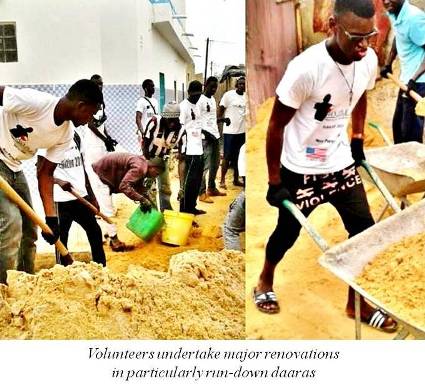
Another plank of the NODETA program was vocational training. Over the
course of the campaign, forty-three talibé children received training in
gardening, recycling, and pottery. Rose noted that many more children
could have benefited from vocational training if their marabouts had been
more willing to cooperate.
The NODETA students also surveyed one hundred and fifty people in the
Saint Louis area to learn about their attitudes toward talibés, forced
begging and the daaras that control these children. The survey results
provided some important insights into the talibé situation in Senegal.
Some people refuse to help talibés, thinking of them as bandits or
thieves. Others do 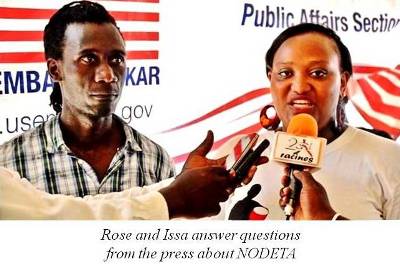 not consider talibés to be their responsibility as
many of the children are foreigners, trafficked from other countries.
It was clear that talibés are thought of as different, apart from
Senegalese society. Talibés are defined by many as beggars and not
as children.
not consider talibés to be their responsibility as
many of the children are foreigners, trafficked from other countries.
It was clear that talibés are thought of as different, apart from
Senegalese society. Talibés are defined by many as beggars and not
as children.
But, for NODETA volunteers, these attitudes have been forever altered.
Having learned who the talibés are, where they come from and how they
really live, the students' eyes have been opened. Talibé children
are now seen by these young agents of change as who they really are,
as children with all the same needs, dreams and
potential of any other children. 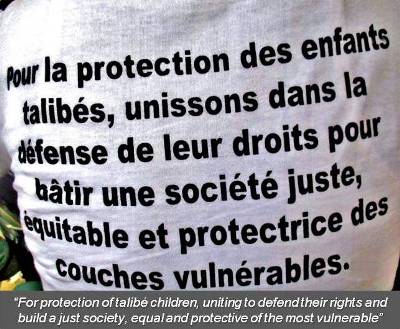 The students all feel that a sense of individual
responsibility toward the talibés has been awakened in them. In the
words of one team leader, El Hadj Malick Wade, "We must make the
choice ... between what is right and what is easy."
The students all feel that a sense of individual
responsibility toward the talibés has been awakened in them. In the
words of one team leader, El Hadj Malick Wade, "We must make the
choice ... between what is right and what is easy."
If this grassroots movement of young, educated people is any
indication, then positive change, indeed, must certainly lie ahead
for the talibé children of Senegal.
______________
We express our sincere thanks to the American embassy
in Dakar for their financial support, which made NODETA 2016 possible.




























